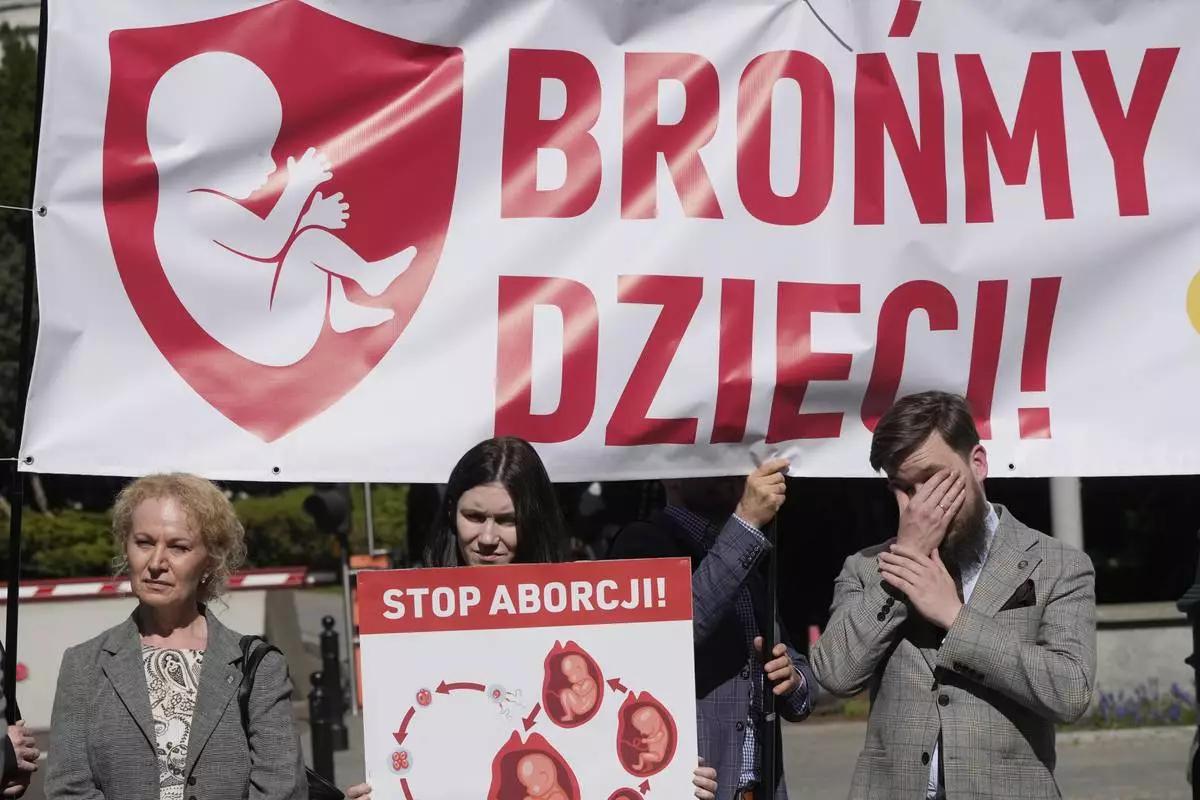Many people were making the same joke as Harry and Meghan’s baby news set Twitter abuzz with conversation.
The news that the Duke and Duchess of Sussex are expecting a baby in spring 2019 prompted a spike in conversation on social media, with #RoyalBaby soon becoming the top trend on Twitter.
Click to Gallery
Many people were making the same joke as Harry and Meghan’s baby news set Twitter abuzz with conversation.
Writer and broadcaster Gyles Brandreth wrote on Twitter: “They don’t hang around in Sussex, do they?”
The popular @Queen_UK parody account also got involved, tweeting: “Already?! #royalbaby.”
Others made reference to the Duchess’ career as an actress on the American drama Suits.
“Every journalist in the UK right now after Meghan and Harry announce they’re having a baby,” she wrote.
Meanwhile some joked about the timing of Meghan’s due date – with the couple’s first baby set to arrive shortly after the day Britain is scheduled to leave the European Union.
Daily Mirror associate editor Kevin Maguire added: “The world’s 7,667,957,370th baby is the answer to Theresa May’s Brexit prayers. For one day only.”
The official announcement was made by Kensington Palace on Monday morning, and many were quick to comment on the short time since the couple’s wedding in May this year.

Writer and broadcaster Gyles Brandreth wrote on Twitter: “They don’t hang around in Sussex, do they?”
“Harry ain’t wasting any time,” said Geordie Shore star Gary Beadle.

The popular @Queen_UK parody account also got involved, tweeting: “Already?! #royalbaby.”

Others made reference to the Duchess’ career as an actress on the American drama Suits.
“There’s only one man that can be the Godfather,” wrote presenter Ben Sheppard, accompanying the tweet with a gif of the show’s Harvey Specter, played by Gabriel Macht.
Journalist Alice May Dear posted a gif of Michael Scott, Steve Carrell’s character in the American adaptation of the Office, shouting “Oh my god! Okay it’s happening!”.

“Every journalist in the UK right now after Meghan and Harry announce they’re having a baby,” she wrote.
Fellow reporter Edward Jones tweeted: “Spare a thought today for all those PRs out there who, after weeks drafting press releases and selling in their story, have just been bumped by the #RoyalBaby”.

Meanwhile some joked about the timing of Meghan’s due date – with the couple’s first baby set to arrive shortly after the day Britain is scheduled to leave the European Union.
“Please let it be March 29th,” wrote BBC News presenter Simon McCoy.

Daily Mirror associate editor Kevin Maguire added: “The world’s 7,667,957,370th baby is the answer to Theresa May’s Brexit prayers. For one day only.”

Finally, the Twitter account for Scottish soft drink Irn-Bru couldn’t resist a tweet referencing the future royal’s possible hair colour.
 #RoyalBaby: The funniest social media reactions as pregnancy announced
#RoyalBaby: The funniest social media reactions as pregnancy announced
“Everyone loves a wee ginger,” it tweeted.
WARSAW, Poland (AP) — Polish lawmakers voted Friday to move forward with proposals to lift a near-total ban on abortion, a divisive issue in the traditionally Roman Catholic country, which has one of the most restrictive laws in Europe.
Members of the lower house of parliament, the Sejm, voted to work on four separate bills. Two of them propose legalizing abortion through the 12th week of pregnancy, in line with European norms. The Sejm also created a 27-member commission to work on the four bills. They voted for it to be led by Dorota Łoboda, a lawmaker who was formerly an activist with a women's rights group.
The party of centrist Prime Minister Donald Tusk is seeking to change the law to allow women to terminate pregnancies up to the 12th week of pregnancy. Tusk won office last year after an election in which young people and women turned out in large numbers amid a record high turnout of nearly 75%. Political observers say voters were mobilized after the abortion law was restricted under the previous right-wing government.
Tusk said he believed Poland still probably has a long way to go to liberalize the law, but welcomed Friday's votes as a move in the right direction. He said he believed the country would ultimately end up with a law that gives women the feeling that they are not “an object of attack, contempt or disregard.”
Tusk is supported on the issue by the Left, a member of his three-party coalition. However, the third coalition partner, the more conservative Third Way, favors restrictions on abortion rights, and the issue has been a source of tension within the government.
Abortion rights advocates said the decision to continue work on the bills, and not reject them outright, was a step in the right direction, though they also don't expect real change in the law coming soon.
Kinga Jelińska, an activist who helps provide abortions with the group Women Help Women, described being “moderately satisfied.”
The Women's Strike, the Polish organization that led massive street protests as abortion rights were restricted, noted that it was the first time since 1996 that bills liberalizing legal access to abortion in Poland were not dropped in a primary vote.
Any liberalization bill would likely be vetoed by President Andrzej Duda, a conservative who last month vetoed a bill making the morning-after pill — which is not an abortion pill but emergency contraception — available over-the-counter to women and girls 15 and older. Duda’s second and final term runs until the summer of 2025.
Abortion opponents are also mobilized in the European Union country that has long considered the Catholic faith to be a bedrock of national identity, but which is also in the process of rapid secularization.
The Catholic church called on the faithful to make Sunday a day of prayer “in defense of conceived life," in a statement carried by the state news agency PAP. An anti-abortion demonstration called the March of Life is also being planned in downtown Warsaw that day.
Currently abortions are only allowed in the cases of rape or incest or if the woman's life or health is at risk. Reproductive rights advocates say that even in such cases, doctors and hospitals turn away women, fearing legal consequences for themselves or citing their moral objections. According to Health Ministry statistics, only 161 abortions were performed in Polish hospitals in 2022.
The reality is that many Polish women already have abortions, often with pills mailed from abroad. Reproductive rights advocates estimate that some 120,000 abortions are carried out each year by women living in Poland.
It is not a crime for a woman to perform her own abortion, only assisting a woman is a crime.
One of the four bills that now goes for further work is a proposal by the Left that would decriminalize assisting a woman who has an abortion, currently a crime punishable by three years in prison.
A fourth proposal, introduced by the Third Way, would keep a ban in most cases but allow abortions in cases of fetal defects — a right that was eliminated by a 2020 court ruling.
Associated Press writer Monika Scislowska in Warsaw contributed.

Members of Poland's parliament vote on a proposal to liberalize Poland's strict abortion law, in Warsaw, Poland, on Friday, April 12, 2024. Polish lawmakers voted Friday to continue work on four proposals that would loosen the law on abortion, a divisive issue in the traditionally Roman Catholic country which has a near-total ban. (AP Photo/Czarek Sokolowski)

Abortion rights activists react after Poland's parliament voted to continue work on proposals to liberalize Poland's strict abortion law, in Warsaw, Poland, on Friday, April 12, 2024. Polish lawmakers voted Friday to continue work on proposals to lift a near total ban on abortion, a divisive issue in the traditionally Roman Catholic country, which has one of the most restrictive laws in Europe. (AP Photo/Czarek Sokolowski)

Women's rights leader, Marta Lempart, speaks to reporters after the Polish parliament voted to continue work on proposals to liberalize Poland's strict abortion law, in Warsaw, Poland, on Friday April 12, 2024. Polish lawmakers voted Friday to continue work on proposals to lift a near total ban on abortion, a divisive issue in the traditionally Roman Catholic country, which has one of the most restrictive laws in Europe. (AP Photo/Czarek Sokolowski)

Abortion rights activists react after Poland's parliament voted to continue work on proposals to liberalize Poland's strict abortion law, in Warsaw, Poland, on Friday, April 12, 2024. Polish lawmakers voted Friday to continue work on proposals to lift a near total ban on abortion, a divisive issue in the traditionally Roman Catholic country, which has one of the most restrictive laws in Europe. (AP Photo/Czarek Sokolowski)

Members of Poland's parliament vote on a proposal to liberalize Poland's strict abortion law, in Warsaw, Poland, on Friday, April 12, 2024. Polish lawmakers voted Friday to continue work on four proposals that would loosen the law on abortion, a divisive issue in the traditionally Roman Catholic country which has a near-total ban. (AP Photo/Czarek Sokolowski)

Abortion rights activists react after Poland's parliament voted to continue work on proposals to liberalize Poland's strict abortion law, in Warsaw, Poland, on Friday, April 12, 2024. Polish lawmakers voted Friday to continue work on proposals to lift a near total ban on abortion, a divisive issue in the traditionally Roman Catholic country, which has one of the most restrictive laws in Europe. (AP Photo/Czarek Sokolowski)

Abortion rights activists react after Poland's parliament voted to continue work on proposals to liberalize Poland's strict abortion law, in Warsaw, Poland, on Friday, April 12, 2024. Polish lawmakers voted Friday to continue work on proposals to lift a near total ban on abortion, a divisive issue in the traditionally Roman Catholic country, which has one of the most restrictive laws in Europe. (AP Photo/Czarek Sokolowski)

Abortion rights activists react after Poland's parliament voted to continue work on proposals to liberalize Poland's strict abortion law, in Warsaw, Poland, on Friday, April 12, 2024. Polish lawmakers voted Friday to continue work on proposals to lift a near total ban on abortion, a divisive issue in the traditionally Roman Catholic country, which has one of the most restrictive laws in Europe. (AP Photo/Czarek Sokolowski)

Abortion rights activists react after Poland's parliament voted to continue work on proposals to liberalize Poland's strict abortion law, in Warsaw, Poland, on Friday, April 12, 2024. Polish lawmakers voted Friday to continue work on proposals to lift a near total ban on abortion, a divisive issue in the traditionally Roman Catholic country, which has one of the most restrictive laws in Europe. (AP Photo/Czarek Sokolowski)

Dariusz Matecki, a conservative lawmaker in the Polish parliament, displays a poster showing a fetus and the words "10th week after conception," during a vote on abortion in Warsaw, Poland, on Friday, April 12, 2024. Polish lawmakers voted Friday to continue work on four proposals that would loosen the law on abortion, a divisive issue in the traditionally Roman Catholic country which has a near-total ban. (AP Photo/Czarek Sokolowski)

Dariusz Matecki, top right, a conservative lawmaker in the Polish parliament, displays a poster showing a fetus and the words "10th week after conception," during a vote on abortion in Warsaw, Poland, on Friday, April 12, 2024. Polish lawmakers voted Friday to continue work on four proposals that would loosen the law on abortion, a divisive issue in the traditionally Roman Catholic country which has a near-total ban. (AP Photo/Czarek Sokolowski)

An anti-abortion rights activists holds up small figures of fetuses at a protest held outside of the Polish parliament while lawmakers debated legalizing the country's strict abortion law, in Warsaw, Poland, on Thursday April 11, 2024. The traditionally Catholic nation has one of the most restrictive laws in Europe — but the reality is that many women terminate pregnancies at home with pills mailed from abroad. (AP Photo/Czarek Sokolowski)

Anna Maria Żukowska, a left-wing lawmaker, presents to parliament a proposal for liberalizing the Polish abortion law in Warsaw, Poland, on Thursday April 11, 2024. The traditionally Catholic nation has one of the most restrictive laws in Europe — but the reality is that many women terminate pregnancies at home with pills mailed from abroad. (AP Photo/Czarek Sokolowski)

Anti-abortion activists hold a demonstration with a sign that says "We defend children" as the Polish parliament debates liberalizing the abortion law, in Warsaw, Poland, on Thursday April 11, 2024. The traditionally Catholic nation has one of the most restrictive laws in Europe — but the reality is that many women terminate pregnancies at home with pills mailed from abroad. (AP Photo/Czarek Sokolowski)

An anti-abortion rights activists holds up small figures of fetuses at a protest held outside of the Polish parliament while lawmakers debated legalizing the country's strict abortion law, in Warsaw, Poland, on Thursday April 11, 2024. The traditionally Catholic nation has one of the most restrictive laws in Europe — but the reality is that many women terminate pregnancies at home with pills mailed from abroad. (AP Photo/Czarek Sokolowski)

Abortion rights activists attend a debate in the Polish parliament from the gallery of the assembly, in Warsaw, Poland, on Thursday April 11, 2024. The traditionally Catholic nation has one of the most restrictive laws in Europe — but the reality is that many women terminate pregnancies at home with pills mailed from abroad. (AP Photo/Czarek Sokolowski)

Dariusz Matecki, a conservative lawmaker in the Polish parliament, displays a poster showing a fetus and the words "10th week after conception," during a debate on liberalizing the abortion law , in Warsaw, Poland, on Thursday April 11, 2024. He also played the sound of a child's heartbeat through a microphone next to his chair. The traditionally Catholic nation has one of the most restrictive laws in Europe — but the reality is that many women terminate pregnancies at home with pills mailed from abroad. (AP Photo/Czarek Sokolowski)

Abortion rights activists react during a debate in the Polish parliament from the gallery of the assembly, in Warsaw, Poland, on Thursday April 11, 2024. The traditionally Catholic nation has one of the most restrictive laws in Europe — but the reality is that many women terminate pregnancies at home with pills mailed from abroad. (AP Photo/Czarek Sokolowski)







 #RoyalBaby: The funniest social media reactions as pregnancy announced
#RoyalBaby: The funniest social media reactions as pregnancy announced



















